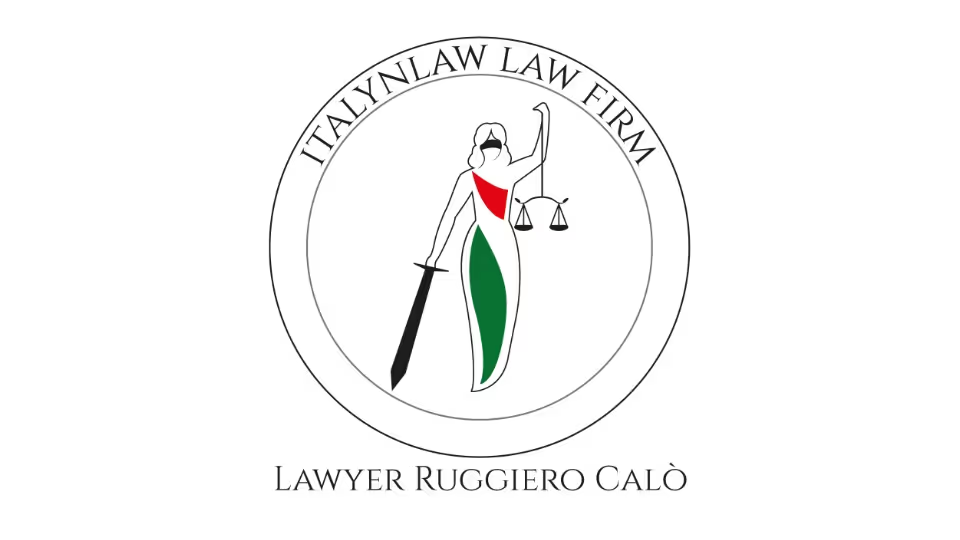Debt Collection Agency in Italy - No Win, No Fee
Your claims are handled exclusively by Studio Legale Tedioli, our licensed Italian partner (agenzia di recupero crediti) with 55+ years of expertise. Submit your claim in minutes, track progress in real time, and pay only when we recover your money.

Why Choose Debitura for Debt Collection in Italy

Fast, Simple & Risk-Free Debt Collection in Italy
Debitura connects you with Studio Legale Tedioli, a Mantova-based law firm with 55+ years of expertise and Supreme Court admission. Euro-Counsels network member for seamless cross-border claims.
- Risk-free: Pay only when we recover your money.
- Quick setup: Submit invoices in a few clicks.
- Real-time tracking: Monitor progress live in one portal.
- Local expertise: Licensed Italian legal professionals handle everything.

Start collecting in Italy in three simple steps
- Create your free Debitura account and upload your claim with supporting documents (invoices, contracts, delivery notes)
- Sign the Standard Debt Collection Agreement and Power of Attorney digitally - takes under 2 minutes
- Studio Legale Tedioli begins collection within 24-48 hours. Track every step via your Debitura dashboard.
Already using an ERP system? Debitura integrates with SAP, Oracle NetSuite, Microsoft Dynamics 365, Fortnox, e-conomic, Visma, and more for automated claim submission.


Transparent, risk-free pricing
Debitura operates on a 100% No Win, No Fee basis. You pay nothing upfront and only pay a success fee when money is actually recovered from your Italian debtors.
- Zero setup fees, zero monthly subscriptions, zero hidden charges
- Success fees only charged when money is recovered
- All fees invoiced locally by Studio Legale Tedioli in EUR
- Full cost visibility before you submit any claim

Fast, Simple & Risk-Free Debt Collection in Italy
Debitura connects you with Studio Legale Tedioli, a Mantova-based law firm with 55+ years of expertise and Supreme Court admission. Euro-Counsels network member for seamless cross-border claims.
- Risk-free: Pay only when we recover your money.
- Quick setup: Submit invoices in a few clicks.
- Real-time tracking: Monitor progress live in one portal.
- Local expertise: Licensed Italian legal professionals handle everything.
Debt Collection Process in Italy - Clear, Fast & Fully Managed
Why you can trust this guide
At Debitura, we uphold the highest standards of impartiality and precision to bring you comprehensive guides on international debt collection. Our editorial team boasts over a decade of specialized experience in this domain.
Questions or feedback? Email us at contact@debitura.com — we update this guide based on your input.
Debitura By the Numbers:
- 10+ years focused on international debt collection
- 100+ local attorneys in our partner network
- $100M+ recovered for clients in the last 18 months
- 4.9/5 average rating from 621 reviews
Expert-led, locally validated
Written by Robin Tam (16 years in global B2B debt recovery). Every page is reviewed by top local attorneys to ensure legal accuracy and practical steps you can use.
Contributing local experts:
Last updated:
Welcome to Debitura, your premier partner in navigating through the intricacies of debt collection in Italy. With a decade of unmatched experience and a unique blend of local expertise backed by global insights, this guide is your ultimate companion for efficient debt recovery in Italy. Let Debitura be your cornerstone to success in this complex process.
From first contact to final recovery, your Italian debt collection follows a proven four-stage journey. Most commercial debts resolve during amicable collection (recupero stragiudiziale), with legal escalation available only if needed and always under your control.
- Most Italian commercial debts recovered amicably, without court involvement
- Legal escalation is optional - you control the decision and approve all quotes
- Enforcement via ufficiale giudiziario ensures you actually get paid
- Average timeline: 60-90 days for amicable; 2-3 months for uncontested decreto ingiuntivo
Step 1. Starting Your Claim (Avvio del Recupero) 📤
How do I start collecting a debt in Italy? Begin by uploading your claim to the Debitura platform with supporting documentation. Studio Legale Tedioli, licensed under the Ordine degli Avvocati di Mantova and operating in compliance with Italian debt collection laws, initiates professional recovery within 24-48 hours.
- Upload invoices, contracts, and proof of delivery via secure platform
- Sign digital Power of Attorney to authorize collection
- Italian law requires debt collectors to operate under TULPS Article 115 or as licensed financial intermediaries under TUB Article 106
- All communications handled in Italian by native-speaking legal professionals
📊 Over 80% of debtors respond within the first 30 days of professional contact (UNIREC, 2023).
⏳ Duration: 24-48 hours to initiate
Create Your Free Profile Now →
Step 2. Amicable Collection (Recupero Stragiudiziale) 🤝
What happens during amicable debt collection in Italy? Most debts are recovered at this stage without court involvement. Studio Legale Tedioli sends a formal demand letter (lettera di messa in mora) per Article 1219 of the Codice Civile, initiating debtor negotiations through phone, email, and registered post (raccomandata A/R).
- Formal default notice (costituzione in mora) triggers statutory late payment interest
- B2B invoices accrue interest at ECB rate + 8% plus EUR 40 flat recovery cost under D.Lgs. 231/2002
- Italian privacy regulations (Garante Privacy guidelines) govern respectful debtor communication
- Installment plans and settlements negotiated where appropriate to preserve business relationships
📊 Approximately 37% of cases by number are resolved through amicable collection (UNIREC, 2023).
⏳ Duration: 60-90 days
Step 3. Legal Escalation (Procedura Giudiziale) ⚖️
What if amicable collection fails in Italy? If the debtor refuses to pay or disputes the claim, legal action becomes an option - but you always control the decision. Studio Legale Tedioli sources up to 3 competitive quotes from vetted Italian attorneys for your review.
- Decreto ingiuntivo (order for payment) is the standard fast-track procedure under Articles 633-656 CPC
- Court fees (contributo unificato) range from EUR 43 for claims under EUR 1,100 to EUR 237 for claims up to EUR 26,000
- Uncontested payment orders typically issued within 2-4 weeks, with 40-day opposition period
- If contested, ordinary litigation (procedimento ordinario di cognizione) applies
📊 Only 15-20% of decreto ingiuntivo orders are opposed by debtors (industry data).
⏳ Duration: 2-3 months uncontested; 1-2 years if contested
Step 4. Enforcement & Recovery (Esecuzione Forzata) 🏦
How do I enforce a judgment in Italy? Once you have an enforceable title (titolo esecutivo), Italian law provides multiple methods to actually collect your money through the ufficiale giudiziario (judicial enforcement officer).
- Precetto (formal demand to pay) gives debtor 10 days to pay voluntarily
- Pignoramento presso terzi freezes bank accounts and garnishes wages (limited to 20% of net salary for most debts)
- Real estate attachment (pignoramento immobiliare) for larger claims - property auctions average 2-5 years
- Article 492-bis CPC allows electronic asset searches through tax agency databases
📊 Bank account freezes can yield funds within weeks; property auctions historically average 5 years but recent reforms target 2 years (Banca d'Italia, 2023).
⏳ Duration: Weeks to months for garnishments; 2-5 years for real estate
Will this damage my business relationship?
Professional debt collection preserves relationships better than letting invoices age. Studio Legale Tedioli emphasizes respectful, legally compliant communication. Most Italian businesses understand that overdue invoices require formal follow-up.
Transparent Pricing: No Win, No Fee Debt Collection Italy
Debitura offers competitive, transparent pricing with no upfront costs.
- No upfront fees, subscriptions, or hidden charges – you pay only when your debt is recovered
- Rates from 6-20% depending on claim size
- Legal action quotes sourced free of charge – review up to 3 attorney quotes before deciding
- All invoicing handled locally by Studio Legale Tedioli, with Italien VAT where applicable
Pre-legal collection pricing in Italy
How much does debt collection cost in Italy? Debitura's success-based fees scale with your claim size:
- Claims under USD 999: 20% success fee
- Claims USD 1,000 - 149,999: 9.5% success fee
- Claims above USD 150,000: 6% success fee
No setup charges, monthly subscriptions, or hidden fees. If Studio Legale Tedioli does not collect, you owe nothing.
Optional legal action in Italy- how it works
If amicable collection does not succeed, you can request quotes for legal escalation. This is always your decision - no surprises.
- Free quote sourcing: Receive up to 3 competitive quotes within 3 business days
- No obligation: Review quotes with full cost breakdown before deciding
- Your control: No legal spend without your explicit approval
- Local expertise: Attorneys specialize in decreto ingiuntivo, esecuzione forzata, and Italian commercial law
Who We Help with Debt Collection in Italy
Italian payment culture presents unique challenges: historically slow court proceedings (averaging close to 700 days for civil disputes), a strong preference for amicable resolution, and complex enforcement procedures. Whether you are a local SME or an international exporter, Studio Legale Tedioli's 55+ years of expertise ensures compliant, effective recovery under Italian law.
SMEs and growing businesses
- Problem: Small claims drain cash flow but seem not worth the legal costs
- Solution: Studio Legale Tedioli recovers through amicable methods before escalation
- Benefit: No minimum claim size, no subscription fees
- Ideal for: Italian manufacturers, service providers, wholesalers with domestic receivables
Enterprises and multinationals
- Problem: Multi-country receivables create fragmented processes and compliance headaches
- Solution: One Debitura contract covers Italy plus 182 additional countries
- Benefit: API and ERP integrations for automated claim submission
- Ideal for: Corporations with subsidiaries in Italy, pan-European operations
International suppliers and exporters
- Problem: Language barrier, unfamiliar Italian legal system, and distance make collection difficult
- Solution: Studio Legale Tedioli handles all Italian-language communication and legal procedures
- Key trading partners: Germany, France, Switzerland, United States, and China
- Ideal for: Manufacturers, wholesalers, and distributors exporting goods to Italy
Our Italian & International Expertise
Collecting from debtors across multiple countries? Debitura's network spans 183 jurisdictions with 500+ vetted local partners - from EU member states to emerging markets in Asia, Africa, and the Americas. In Italy, Studio Legale Tedioli brings 55+ years of proven expertise to your claims, with admission to the Supreme Court of Cassation and membership in the Euro-Counsels international legal network.
Expanding into Germany, France, or the Nordics? The same Debitura contract covers them all. Each partner is licensed, locally regulated, and fluent in their jurisdiction's legal procedures.
Tech-Enabled Debt Collection in Italy - ERP, API, AI & Secure Integrations
Cross-border debt collection typically means juggling multiple agencies, logins, and contracts across markets. Debitura replaces this fragmentation with a single platform connecting you to licensed partners in 183 countries - including Studio Legale Tedioli in Italy - with unified reporting, one contract, and seamless integrations.
- ERP integrations: Connect SAP, Oracle NetSuite, Microsoft Dynamics 365, Fortnox, e-conomic, Visma
- API access: Build custom integrations with Debitura's REST API
- Zapier connectivity: Connect 5,000+ apps without coding
- AI-powered insights: Smart case routing, predictive analytics, automated status updates
- Enterprise security: GDPR compliant, encrypted data transfer, strict confidentiality protocols
- Credit checks: Assess debtor solvency before escalating to legal action
Find a Local Debt Collection Lawyer
Need court-ready representation? Share your case once and receive up to three proposals from vetted litigation attorneys—free, fast, and with no commitment.
- Verified specialists
- Quotes in 24 h, no hidden fees
- Fair, pre-negotiated rates

BG Studio Legale is a premier law firm in Pesaro offering effective Debt Collection services in Italy, positioning the firm as the go-to partner for debt recovery since its founding in 2017, with memberships in IICUAE, ILA, and Ordine degli Avvocati di Pesaro.

Giambrone & Partners is a premier law firm in Milano offering effective Debt Collection services in Italy, renowned for its accolades such as Japan Practice Foreign Law Firm of the Year 2024 and memberships including the British Chamber of Commerce for Italy.

Lexia Avvocati is a premier law firm in Milano offering effective Debt Collection services in Italy, positioning the firm as the go-to partner for debt recovery with accolades like "Studio dell’Anno Fintech" and memberships in international chambers since 2016.

Studio Legale Avvocato Ruggiero Calo' is a premier law firm in Barletta offering effective Debt Collection services in Italy, recognized for its expertise since 2005, and a trusted member of Ordine Avvocati di Trani and Consiglio Nazionale Forense.

QLT - Quorum Law & Tax is a premier law firm in Rome offering effective Debt Collection services in Italy, recognized for excellence since 2011, with accolades such as Studio dell’Anno, and memberships in Interact Law and the International Bar Association.

Camigest is a premier debt recovery agency in Montecatini Terme offering effective Debt Collection services in Italy, founded in 1996, specializing in pre-litigation credit recovery with a structured process and comprehensive support, making it the go-to partner for debt recovery.

Tedioli Law Firm is a premier law firm in Italy offering effective risk-free Debt Collection services, established in 1969 and recognized for its World Bank & IFC accolade, serving clients globally as an exclusive Debitura partner with No Cure No Pay terms.





.svg)

.webp)
.png)

.png)
.svg)












.svg)

